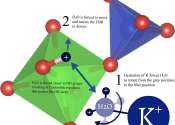A cardiac arrest, also known as cardiopulmonary arrest or circulatory arrest, is the abrupt cessation of normal circulation of the blood due to failure of the heart to contract effectively during systole.
A cardiac arrest is different from (but may be caused by) a heart attack or myocardial infarction, where blood flow to the still-beating heart is interrupted (as in cardiogenic shock).
"Arrested" blood circulation prevents delivery of oxygen to all parts of the body. Cerebral hypoxia, or lack of oxygen supply to the brain, causes victims to lose consciousness and to stop normal breathing, although agonal breathing may still occur. Brain injury is likely if cardiac arrest is untreated for more than five minutes, although new treatments such as induced hypothermia have begun to extend this time. To improve survival and neurological recovery immediate response is paramount.
Cardiac arrest is a medical emergency that, in certain groups of patients, is potentially reversible if treated early enough (See "reversible causes" below). When unexpected cardiac arrest leads to death this is called sudden cardiac death (SCD). The primary first-aid treatment for cardiac arrest is cardiopulmonary resuscitation (commonly known as CPR) which provides circulatory support until availability of definitive medical treatment, which will vary dependent on the rhythm the heart is exhibiting, but often requires defibrillation.









